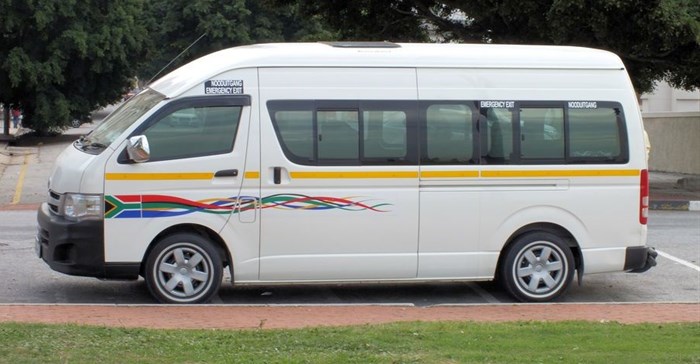At the 2017 Southern African Transport Conference at the CSIR in Pretoria this week, Shaun Mhlanga presented ‘An Assessment of the Regulatory Arrangements in the Minibus Taxi Industry in South Africa: A Primer for Self-Regulation'. According to him, while South Africa has a sophisticated regulatory environment; it needs to be translated into workable business processes.
He explained there is a need to facilitate learning and improvement through institutions (both state and non-state actors) in the sector.
Mhlanga believes the development of sustainability schemes can aid better coordination and cooperation of human behaviour, as well as other road safety and economic issues. An institutional learning environment would facilitate sharing of knowledge in industry best practice, which, until now, has been non-existent. He said such schemes could draw on a philosophical tradition of community and social solidarity. He states that mini-bus taxi operators should move away from route and association-based relationships.

Shaun Mhlanga
“Complimentary mechanisms exist that can potentially escalate targeted improvements in road economics and safety. This will make systems far more transparent i.e. enable identification of what is on the roads, what is in the pipeline and who owns what etc.”
Enhancing public welfare
Such mechanisms must be explored while promoting value creation for broader stakeholders and enhancing public welfare. Mhlanga says successes from the Road Transport Management System (RTMS) in the road freight sector could potentially be leveraged in the minibus taxi industry.
These include:
- the reduction and minimisation of overloading;
- prevention of road damage and preservation of infrastructure;
- vehicle safety enhancements;
- driver wellness initiatives;
- a reduction in traffic violations;
- active promotion of skills development;
- measuring of respective performance;
- reductions in crashes and incidents
- and improved compliance with traffic violations.
“There is much that can be done in the minibus taxi industry, especially in terms of how it is managed. We need to understand human behaviour within the industry. Improving regulation and road safety in the minibus taxi industry represents a critical pathway to reducing deaths and injuries that arise from road accidents.”
He added that there was a perception that the minibus taxi industry was informal and that it was easy for new operators to enter it.
Ruthless and deadly unregulated
“These perceptions are not accurate. There are legal restrictions to market entry. Several government bodies have been established with the purpose of maintaining vehicle and driver fitness, for example. South Africa is an extreme case of how ruthless and deadly unregulated competition can be. We merely trust the different relationships between taxi industry stakeholders,” he said.
More transport related insights will be shared during the remaining days of the 2017 Southern African Transport Conference.













































